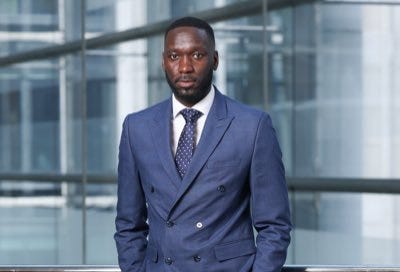REVEALED: True scale of historic match-fixing in England by Asian crime gangs
A new podcast series from BBC Sounds explores football corruption in England from fixer Moses Swaibu's perspective. It's good, but there's so much more to tell ...
A new BBC podcast series, “Confessions of a Match Fixer”, tells the story of former footballer Moses Swaibu, now 35 but a product of Crystal Palace’s youth academy who became a key cog in an Asian match-fixing syndicate.
They corrupted lower-league and non-league football in England, something I investigated extensively 12 years ago as it was happening. Listening to the new pod series has been like finding the last dozen pieces of an enormous jigsaw, and confirms industrial-scale corruption I suspected but couldn’t definitively prove in 2012-13.
Swaibu was one among a handful of conspirators jailed for corruption, but there were many dozens of people involved in the fixing who have never been held to account.
Today I’ll be telling you details that are not in the new podcast series but that help to paint a fuller picture of the corruption, including:
The number of clubs and players who were fixing games in England then.
Details of some fixed matches, including the names of players who were playing in them.
How match-fixing players who were being paid to corrupt games across England were then paid to move to Australia and fix games there.
How some of those players were caught and punished in Australia’s biggest match-fixing scandal, but numerous others escaped back to England and went back to playing in England, with the knowledge of the English FA.
Why football remains hugely susceptible to fixing, especially in lower divisions, in all countries. And why a more recent alleged Premier League “fix” probably wasn’t down to a crime gang but could yet cost the player at the heart of that case his career.
All eight episodes of “Confessions” were released on BBC Sounds a fortnight ago, 14 August, and Swaibu (below) is the central figure, telling his story to former Watford striker Troy Deeney. Parts of the series include dramatised reconstructions of key events.
It’s a compelling but complex story, but it is worth stressing that those who went to prison for fixing (five people, including Swaibu) were just a tiny minority of those involved. And they didn’t go to prison for fixing specific matches, per se, but rather for being involved in a conspiracy to commit bribery, which was itself uncovered by investigative journalists from the Daily Telegraph.
In other words, the Telegraph knew about fixing, but in order to prove those involved were corrupt, they set up a sting to catch those guilty, planning to fix other games.
Former Premier League player Delroy Facey was arrested and later jailed after the Telegraph sting, as was Swaibu at the same time. Before that two Singaporeans with links to global match-fixing kingpin Wilson Raj Perumal had been convicted and jailed for conspiracy to commit bribery - that pair being Chann Sankaran and Krishna Ganeshan, sent to prison along with Michael Boateng, a former Palace academy graduate friend of Swaibu.
Make no mistake, all five of those jailed had been involved in serial fixing corruption, as I’ll explain, but they went to prison for being caught agreeing to fix in the Telegraph investigation.
One of the strengths of the “Confessions” series is it makes clear what it was like to be inside a fixing syndicate. There are carrier bags full of cash for successfully rigging games, and bullets as warning “gifts” when fixes don’t happen, to let players know the crime bosses were serious people who might kill them.
There are also specific details about a few bent games; only a few but enough to show what really went down. Also clear is a timeline that shows Swaibu had first-hand knowledge of fixes dating back to at least January 2011, and continuing to the closure of the 2012-13 English season and beyond.
To begin, we’ll explore a fix that Swaibu turned down in 2011, and then the first one he took part in, in 2012, which earned him the thick end of £100,000.





